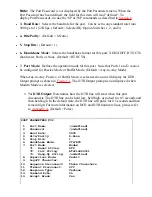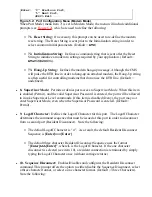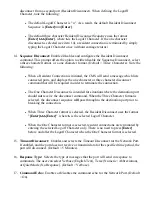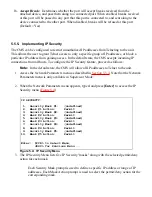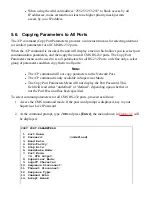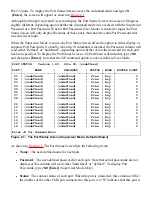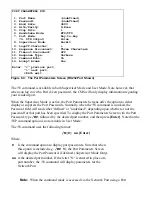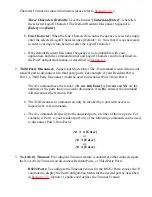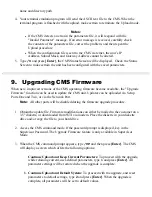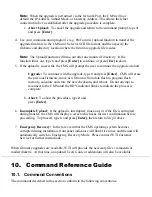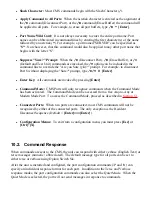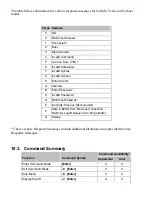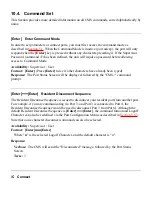
(User) password, the /W command will only display the Sequence Disconnect,
Logoff Character, and the status of the Accept Break item.
7. Operation
7.1. Any-to-Any Mode
Any-to-Any Mode Ports can be connected to other Any-to-Any, Passive, Buffer, or Modem
Mode Ports by accessing Command Mode and issuing the /C Command. All ports can be
configured for the Any-to-Any Mode. Note that the Network Port is always configured for
Any-to-Any Mode.
7.1.1. Port Connection and Disconnection
The CMS provides communication between devices without the requirement that both devices
use the same communication parameters. This allows you to connect devices that use dissimilar
baud rates, parity, handshake, and etc.. The CMS converts data rates and other parameters,
eliminating the need to select common parameters for all connected devices.
7.1.1.1. Connecting Ports
Two different types of connections can be made between CMS ports; Resident Connections and
Third Party Connections.
Resident Connections: Your resident port issues a /C command to connect to a second
port. For example, Port 4 issues the /C command to connect to Port 5.
●
Third Party Connections: (Supervisor Mode Only) Your resident port issues a /C
command to create a connection between two other ports. For example, Port 1 is your
resident port, and Port 1 issues a command to connect Port 2 to Port 3.
●
Note:
Third Party Connections can only be initiated from a port with Supervisor
Level command capability.
●
The RS232 Ports cannot initiate a connection to the Network Port.
●
If a port has accessed Command Mode using the Port Password (User Mode),
then that port will only be able to connect to other ports that share the same
port password.
●
To Connect ports, proceed as follows:
Access the Command Mode. If the Password Prompt is displayed, enter your Supervisor
or Port Password.
1.

